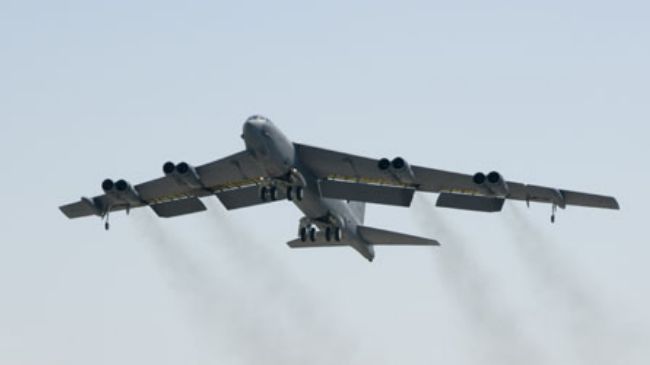Geopolitics of US war on Syria

As President Barack Obama persists in his effort to build domestic and international support for a unilateral US military strike on Syria, despite the noticeable setback at the G-20 summit in St. Petersburg, where he was rebuffed by the majority of participants including the European Union, it is important to focus on the potential geopolitical and geostrategic ramifications of Obama’s war.
Although promoted as a “limited strike,” it is becoming abundantly clear that Obama’s real intention is to tip the military balance in the Syrian theater of conflict in favor of the rebels by degrading, even depleting, Damascus’s military capability, as confirmed in the recent congressional hearings.
The US media is now leaking information regarding Pentagon’s extensive “laundry list” of targets and the preparations for carpet bombings by deploying the strategic long-range bombers, in addition to the cruise missiles. This is not to mention the US special operation forces stationed in Jordan, who will likely play a role in “covert operations” aimed at Syrian military assets.
On the surface, US officials have rationalized this aggressive military plan as a timely antidote to the Syrian regime’s recent gains over the rebels, claiming that they are still interested in the “Geneva process” that could bring the rebels and the Syrian government representatives around the table. Yet, few, including the Russian officials engaged in preparing the “Geneva II” summit, have any illusion that the military campaign can actually assist the political process and, in fact, both President Putin and Foreign Minister Lavrov, have made it clear to the Americans and Europeans that a US attack on Syria will spell doom for the planned mediation meeting; UN’s special envoy, Lakhdar Brahimi, has concurred with this opinion and has strongly advised against a US attack. All this suggests that US’s real intention is to deliver a knockout punch to Assad’s regime and thus realize the long-sought goal of regime change in Syria.
If successful, the US strategy would represent a major geostrategic setback to Russia, which has a foothold in the Middle East by accessing the strategic Mediterranean Sea through its 1971 agreement with Damascus that allows the Russian fleet’s use of port city of Tartus. Depriving Russia of its important, even vital, military lifeline in eastern Mediterranean would therefore be tantamount to a major geostrategic offensive by the US (and NATO), weakening Moscow’s ability as a counter-force that puts a premium on US hegemony in the Middle East.
Simultaneously, a US victory in Syria would represent a strategic defeat for Iran and the “axis of resistance” that includes Lebanon and Syria and has been a pillar of resistance to a Pax Israelica. A strategic re-mapping of the region would be internally inscribed in a US military campaign in Syria, simultaneously serving the US’s and Israel’s geostrategic ambitions, with a number of Arab client regimes playing the role of support casts, above all in financial terms.
The stakes being so high in Syria, it is little surprise that Moscow has interpreted Obama’s military intentions in Syria as a serious infringement on its “sphere of influence” warranting a muscular military response in the form of a major build-up of Russian naval forces in the Mediterranean waters.
This while Tehran has declared that it will stand by Damascus “to the end,” thus neutralizing the US’s maneuver to throw a wedge between the two strategic allies commonly menaced by Israel; the potential threats posed to Israel’s security in the event of a US war in Syria act, in fact, as a major deterrent that reduce the likelihood of this war, just as Russia’s quasi-brinksmanship also serves as a key discouraging factor. After all, US is not the only world power whose “credibility” is on the line in Syria; Russia is equally concerned about the attrition of its power and credibility if it loses its foothold in Syria.
As a result, the thin veneer of “combating the chemical weapons threat” aside, the US’s military gambit in Syria would be tantamount to an illogical superpower adventurism unmindful of the disproportionate geostrategic ramifications inimical to US’s national security interests. It is doubtful, however, that the illogic of a “runaway superpower” would ultimately prevail in Washington.
A “face-saving” minimal attack on Syria, combined with a greater White House infusion of “lethal weapons” in the hands of Free Syrian Army, may be in the cards, which would simply prolong the deadly conflict in Syria, to the detriment of Russian and Iranian interests, yet serving US’s anti-Russian and anti-Iran motives, bankrolled by the oil-rich Arab states, who must feel the heat of “sunk-costs” if they persist with their instability role vis-a-vis Syria’s status quo.







